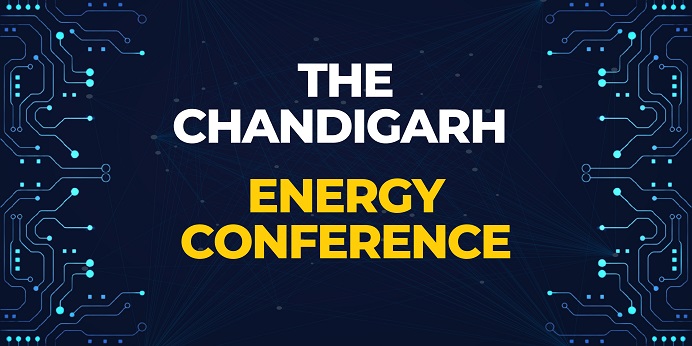The Chandigarh Energy Conference
The Chandigarh Energy Conference: Powering Sustainable Futures
The Chandigarh Energy Conference is an annual gathering that brings together energy experts, policymakers, researchers, and industry leaders to discuss and explore the latest trends, challenges, and innovations in the field of energy.
With a focus on sustainability and clean energy, the conference aims to drive the transition towards a more sustainable and low-carbon future. By providing a platform for knowledge sharing, collaboration, and networking, the conference plays a crucial role in shaping the energy landscape and fostering sustainable development in the region.
Context and Importance of the Energy Sector:
Understanding the context and importance of the energy sector is essential to appreciate the significance of the Chandigarh Energy Conference. Energy is the backbone of modern society, powering economic growth, infrastructure development, and technological advancements. However, the traditional reliance on fossil fuels has led to significant environmental challenges, including climate change and air pollution. The conference recognizes the urgent need to transition to sustainable energy sources and explores strategies to achieve a cleaner and more sustainable energy future.
Objectives of the Chandigarh Energy Conference:
The Chandigarh Energy Conference aims to achieve several key objectives. Firstly, it aims to foster knowledge sharing and exchange of ideas among energy professionals, policymakers, and researchers. The conference provides a platform for experts to share their insights, research findings, and best practices in various aspects of the energy sector. Participants can learn from one another, gain new perspectives, and explore innovative solutions to address the challenges faced by the industry.
Secondly, the conference seeks to facilitate collaboration and networking opportunities. It brings together stakeholders from different sectors, including government agencies, industry, academia, and civil society, to foster partnerships, knowledge transfer, and collaboration. By connecting diverse stakeholders, the conference encourages interdisciplinary approaches and promotes holistic solutions to energy-related issues.
Key Themes and Topics Explored:
The Chandigarh Energy Conference covers a wide range of themes and topics relevant to the energy sector. These include:
- a) Renewable Energy Technologies: Exploration of the latest advancements, trends, and applications of renewable energy technologies such as solar, wind, hydro, geothermal, and biomass. Discussions on the challenges and opportunities in scaling up renewable energy deployment, cost reduction, and integration into the existing energy infrastructure.
- b) Energy Efficiency and Conservation: Insights into energy-efficient technologies, building design, and energy management systems. Discussions on the importance of energy conservation and strategies to improve energy efficiency in industries, commercial buildings, and households. This includes exploring energy-efficient appliances, smart grids, and demand-side management approaches.
- c) Clean and Sustainable Transportation: Exploration of clean transportation solutions, including electric vehicles (EVs), hydrogen fuel cells, and sustainable biofuels. Discussions on infrastructure development, policy frameworks, and incentives to promote the adoption of low-carbon transportation technologies. This theme also covers emerging trends in public transportation, shared mobility, and intelligent transportation systems.
- d) Energy Policy and Regulation: Analysis of energy policies, regulations, and market frameworks that support the transition to a sustainable energy system. Discussions on the role of governments and regulatory bodies in incentivizing renewable energy adoption, promoting energy access, and ensuring a level playing field for clean energy technologies. This theme also explores the alignment of energy policies with national and international climate goals.
- e) Energy Access and Equity: Examination of energy access challenges faced by marginalized communities and strategies to address them. Discussions on decentralized energy solutions, off-grid electrification, and inclusive business models that promote energy access and social equity. This theme emphasizes the importance of providing affordable, reliable, and clean energy services to all segments of society.
- f) Energy Storage and Grid Integration: Insights into energy storage technologies, grid integration of renewables, and the role of advanced grid management systems. Discussions on the importance of energy storage for enabling the reliable and flexible integration of renewable energy sources into the grid. This theme explores various energy storage technologies such as batteries, pumped hydro storage, thermal storage, and emerging solutions like hydrogen storage. Participants learn about the challenges, opportunities, and best practices for effective grid integration and the role of storage in enhancing grid stability and resilience.
- g) Climate Change and Carbon Neutrality: Examination of the link between energy and climate change, with a focus on strategies to achieve carbon neutrality. Discussions on greenhouse gas emissions reduction, carbon pricing mechanisms, and policy frameworks to promote low-carbon technologies. This theme highlights the importance of decarbonizing the energy sector as a key strategy to mitigate climate change and achieve sustainable development goals.
- h) Innovations in Energy Research and Development: Showcasing cutting-edge research and development in the energy sector. Discussions on emerging technologies, breakthrough innovations, and research findings that have the potential to transform the energy landscape. This theme encourages collaboration between academia, research institutions, and industry to accelerate the development and deployment of innovative energy solutions.
Prominent Speakers and Industry Experts:
The Chandigarh Energy Conference attracts renowned speakers and industry experts from around the world. These experts come from diverse backgrounds, including academia, government agencies, international organizations, research institutions, and the private sector. Their expertise and insights provide participants with valuable perspectives on energy trends, policy frameworks, technological advancements, and best practices. The presence of these esteemed speakers enhances the credibility of the conference and ensures the delivery of high-quality content.
Case Studies and Success Stories:
The conference features case studies and success stories from organizations and projects that have made significant contributions to the sustainable energy sector. These case studies highlight innovative approaches, successful implementations, and measurable impacts. Participants gain practical insights into real-world projects, their challenges, and the strategies employed to overcome them. These success stories inspire participants and offer valuable lessons that can be applied to their own energy initiatives.
Exhibition and Networking Opportunities:
The Chandigarh Energy Conference provides an exhibition platform for organizations, technology providers, and solution vendors to showcase their products, services, and innovations. Participants have the opportunity to explore the latest energy technologies, solutions, and services that can contribute to their sustainability goals. The exhibition also facilitates networking and collaboration among participants, enabling them to connect with potential partners, suppliers, and project developers.
Policy Dialogue and Advocacy:
The conference serves as a forum for policy dialogue and advocacy on sustainable energy issues. Participants engage in discussions on policy frameworks, regulatory challenges, and barriers to the adoption of clean energy technologies. The conference also provides a platform for stakeholders to voice their opinions, share experiences, and propose policy recommendations that can drive the transition to a sustainable energy future.
Capacity Building and Education:
The conference recognizes the importance of capacity building and education in the energy sector. Workshops, training sessions, and educational programs are conducted to enhance participants’ knowledge and skills in sustainable energy practices. These capacity-building initiatives cater to a wide range of stakeholders, including policymakers, industry professionals, researchers, and students, thereby promoting knowledge transfer and skill development.
Future Outlook and Collaboration Opportunities:
The Chandigarh Energy Conference concludes with a discussion on the future outlook of the energy sector. Experts provide insights into upcoming trends, emerging technologies, and policy developments that will shape the future of the industry. The conference also identifies opportunities for collaboration among stakeholders, encouraging partnerships and joint initiatives to drive the sustainable energy transition.
Conclusion:
The Chandigarh Energy Conference plays a vital role in advancing sustainable energy practices, promoting collaboration, and fostering innovation in the energy sector. By addressing key themes, showcasing success stories, and facilitating networking, the conference empowers participants to contribute to a more sustainable and resilient energy future. With a focus on renewable energy, energy efficiency, policy advocacy, and technology advancements, the conference serves as a catalyst for change in the energy sector, paving the way for a greener and more sustainable world.
Thanks for visiting – Chandigarh News in Hindi | Chandigarh News in English | Chandigarh News Live|Chandigarh Latest News |Chandigarh News Today | Chandigarh News | Chandigarh Latest News | चंडीगढ़ न्यूज़ | Chandigarh News Hindi



